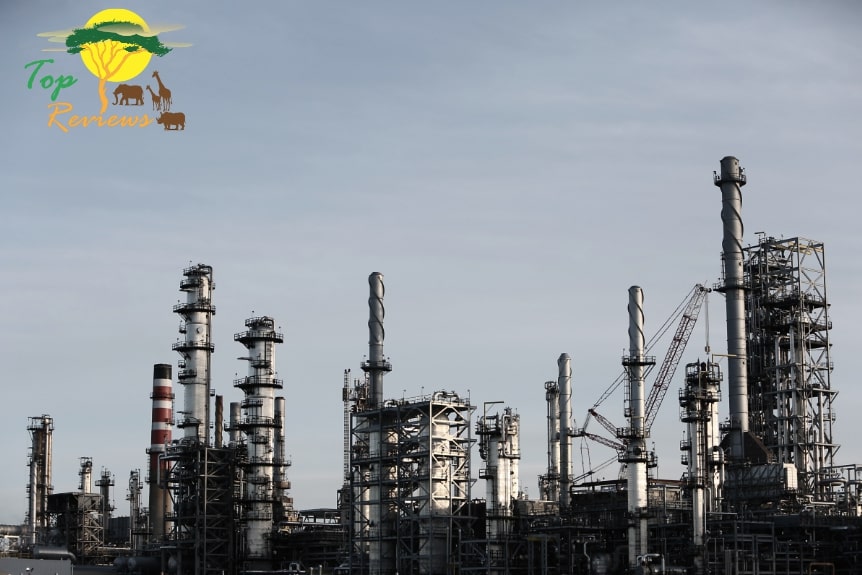Categories > Guides and Tips

The Force Fueling South Africa’s Oil Importation
- Why does South Africa need to import oil?
- What is oil’s significance in the South African economy?
- Oil and transportation
- Oil and the industrial field
- Oil and households
- Oil and foreign exchange
- How does South Africa produce oil?
- What can improve South Africa’s energy security?
- Explore alternative energy sources
- Encourage energy efficiency measures
- Strengthen oil exploration and local production
- Improve public transportation
- FAQs on Oil Importation in South Africa
Over 90% of the country’s electricity is produced using coal, which dominates the South African energy market. However, oil also plays an important role in the country’s energy economy, as it is used for transportation, industry, and domestic purposes.
Also, the nation’s transition into democracy led to a dramatic increase in the demand for oil energy. Despite having some domestic oil production, South Africa’s refineries and resources are not capable of meeting the demand.
Because of this, they’re forced to import their oil supply from external sources. This dependency has strengthened over the years due to growing demand.
In fact, over 90% of crude oil demand in the country is outsourced.
Why does South Africa need to import oil?
South Africa needs to import oil because they don’t have enough oil reserves.
South Africa has six oil refineries located in different provinces however, these are all outdated and existing oil reserves are swiftly depleting.
There is also a lack of government support for improving these refineries in terms of funding and sustainability plans, which leaves the nation no choice but to depend on imported oil.
What is oil’s significance in the South African economy?
Oil is a critical component of the South African economy as it plays a crucial role in transportation, the industrial field, common households, and foreign exchange.
1. Oil and transportation

Oil is the main fuel used in South Africa for all forms of transportation, including vehicles, trucks, and aeroplanes. This makes it a crucial part of the nation’s transportation industry, which has a big impact on the economy.
2. Oil and the industrial field

Oil is a key component in the production of petrochemicals, plastics, and fertilizers, among other industrial processes.
Because of this, the oil industry directly affects the performance of these sectors, and consequently, the South African economy as a whole.
3. Oil and households

Oil is also consumed by homes as a source of energy, mainly for cooking and heating. This makes it a vital component of the nation’s domestic consumption and a significant contributor to economic expansion.
4. Oil and foreign exchange

A considerable amount of South Africa’s foreign exchange expenditure is spent on oil imports, which may have an effect on the nation’s trade balance and exchange rate.
How does South Africa produce oil?

South Africa produces oil via its six refineries, which are expected to meet the country’s 25 billion litre annual energy consumption. Of the six refineries, four utilise imported crude oil to make fuel: one in Free State, two in Durban, and one in Cape Town.
The refinery in Secunda uses coal to produce liquids, and the refinery in Mosselbay produces liquids from gas. Domestic oil production in South Africa is primarily centred in the Mossel Bay area, where there are several offshore oil fields.
However, the ageing of current fields and the scant development of new oil reservoirs are the main causes of the nation’s decreased domestic oil production over the years.
Less than 10% of South Africa’s total oil consumption comes from local oil production, making the nation severely dependent on oil imports.
Numerous other issues, including the high cost of exploration and production, the lack of adequate infrastructure, and regulatory restrictions, have an impact on restricted domestic production.
What can improve South Africa’s energy security?

Exploring alternative energy sources, encouraging energy efficiency measures, strengthening oil exploration and local production, and improving public transportation can all play a part in improving South Africa’s energy security.
1. Explore alternative energy sources
To lessen the nation’s reliance on oil, the government and corporate sector could invest in the development of alternative energy sources like renewable energy.
This includes hydropower, wind power, and solar power, all of which could contribute to the diversification of the nation’s energy mix and a more sustainable energy future.
2. Encourage energy efficiency measures
Policymakers can encourage energy efficiency measures in homes, businesses, and industries to aid in reducing the country’s overall energy consumption and decrease the need for imported oil.
This includes encouraging activities using energy-efficient appliances and advocating for environment-friendly building designs and urban planning.
3. Strengthen oil exploration and local production
The government can strengthen policies and invest more in the exploration of oil and local production in South Africa’s offshore fields.
With sufficient sponsorship, they will be able to improve and update their existing oil refineries. Strong support for research and exploration can also lead to the discovery of new oil reserves.
4. Improve public transportation
South Africa’s government can improve their public transportation and build a more accessible and dependable public transit infrastructure. This can discourage people’s dependence on private vehicles and ultimately decrease the demand for oil.





